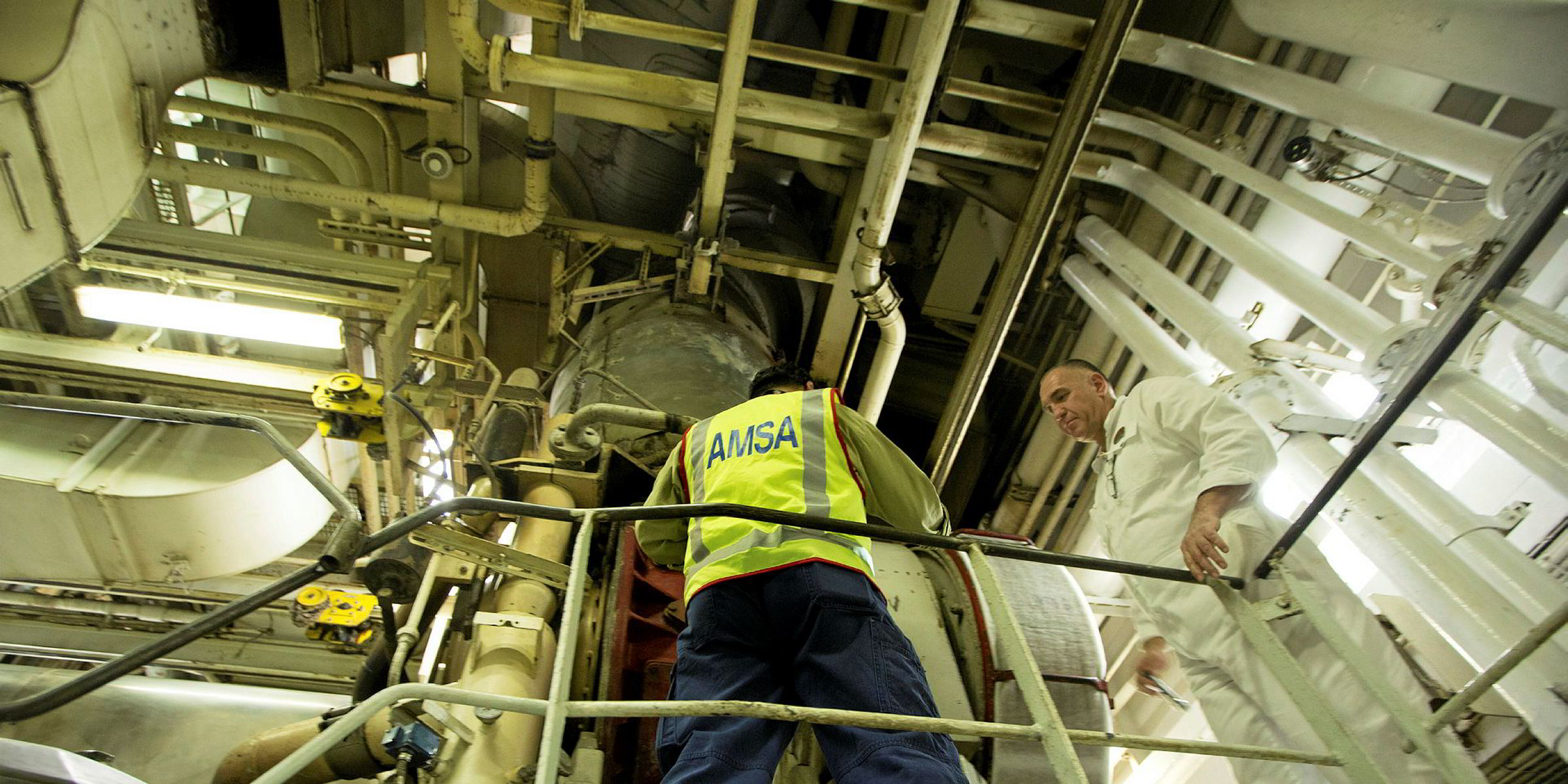Australia’s port state control (PSC) detention rate has declined despite a parliamentary report that questioned the quality and safety of foreign-flag ships calling at the country.
According to the Australian Maritime Safety Agency (AMSA)’s annual report, the detention rate of foreign-flag ships for safety failings fell “significantly” to 5.3% in 2017, from 6.7% in the previous year, the lowest rates since 2006.
The detention rate indicates the number of ships detained per port-state inspection. There were 165 detentions in 2017, out of 3,128 inspections.
The AMSA said: “The decrease in the detention rate and low number of deficiencies per inspection emphasises the benefit in maintaining a consistent, firm, but fair PSC inspection regime.”
However, the figures are the first to be published after an Australian Senate committee report into foreign-flag shipping recommended tighter monitoring.
That report emphasised the need to increase checks on compliance with the crew welfare standards laid out in the Maritime Labour Convention (MLC) 2006.
But according to the AMSA, foreign-flag ships are demonstrating an improved performance in terms of welfare compliance.
MLC non-compliance did not appear in the AMSA’s top five detainable deficiencies in 2017.
The number of MLC deficiencies recorded last year dropped by 15.9% to 918 from 1,091 in 2016. In 2017, just 20 ships with MLC deficiencies were detained compared with 28 in the previous year.
The deficiencies and detentions have often been the result of whistleblowing that has highlighted substandard safety and welfare standards onboard ships.
But the fall in MLC-related detentions comes despite an increase in complaints.
In 2017, the AMSA received 177 complaints about crew conditions compared with 133 in the previous year. The majority of complaints (44) came from seafarers, 42 came from the International Transport Workers’ Federation and 32 from welfare groups.
The AMSA said the improved compliance figures reflected a better understanding of the convention among shipowners, but added that it would continue to focus on MLC compliance.
“It appears that the general understanding of what is expected with respect to MLC compliance has improved. This has resulted in a reduction in the total number of MLC deficiencies and deficiencies per inspection from 2014 to 2017,” the AMSA said.
“AMSA continues to focus on MLC in order to protect the welfare of seafarers and improve outcomes in this area.”
However, there were two notable MLC-related detentions in 2017. The Panama-flag, 82,000-dwt DL Carnation (built 2014) was banned for 12 months for failing to pay crew the correct wages. The Bahamas-flag, 81,700-dwt bulker Rena (built 2011) was banned for six months for repeatedly failing to pay outstanding wages.
Eight flag states recorded a performance worse than the average detention per inspection percentage of 5.3%.
Danish-flag ships were involved in just four detentions but that was enough to give the national flag a detention per inspection rate of 25%, ranking it as the worst-performing flag state in the AMSA figures.
Two of the world’s largest flag states also figured among those with a worse record than the average in 2017. Forty-four Panama-registered ships were detained, giving the flag a detention per inspection rate of 5.8%, while 19 Liberian-flagged vessels were detained, giving it a figure of 6.3%.



